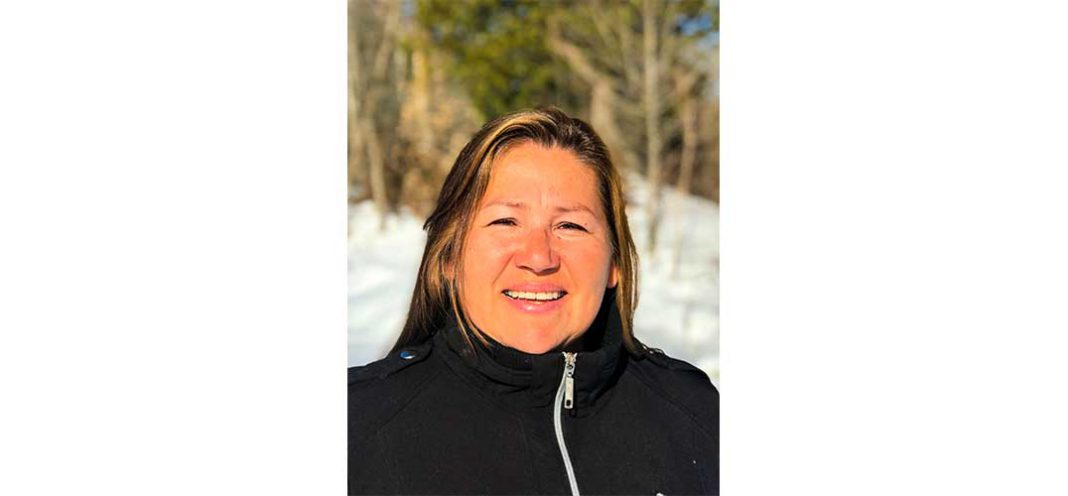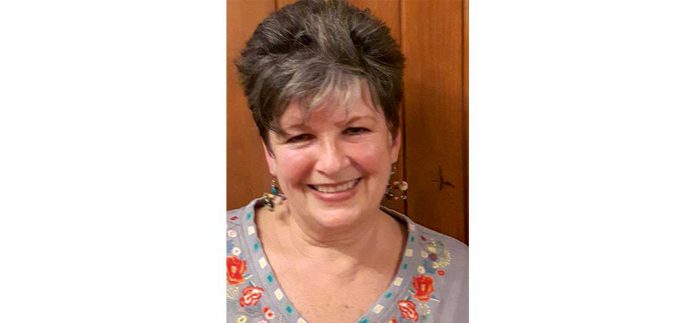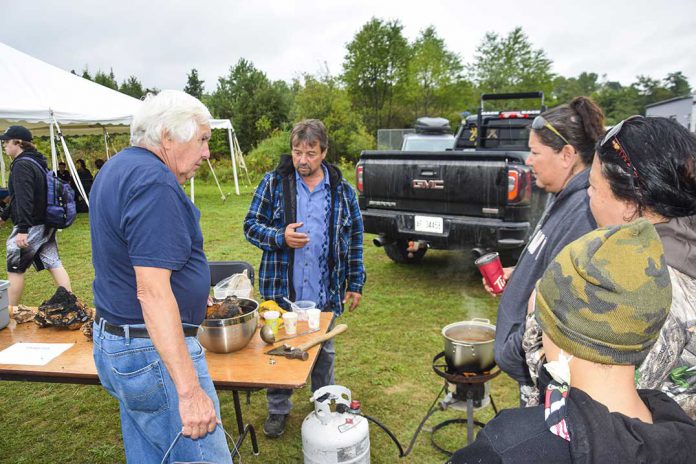WIIKWEMKOONG – In addition to being a wife, a mother and a grandmother with a young family and busy household to care for, including a two-year-old toddler, Shelley Trudeau is also a full-time working professional. However, despite her incredibly full schedule, she makes the time to volunteer in events that matter to her, her family and her community.
Shelley’s passion for hockey is immediately obvious when looking at the impressive list of volunteer coaching assignments she has held over the past 21 years. She has coached within, and outside of her community, including Wiikwemkoong minor hockey teams, rep hockey with the Manitoulin Panthers, and she also created and coached the Wikwemikong Girls. For the past six years she has coached at the national level for Team Ontario in the National Aboriginal Hockey Championships.
Coaching means being at the rink two to three times per week on a pretty regular basis for six to seven months of the year and, although it’s a very busy schedule, she loves coaching the youth teams and says that “being with these children and youth, three to four day a week, and seeing their progress from October to end of season – and not just in their hockey skills but also in their attitude and behaviours is very rewarding.”
For Ms. Trudeau, it’s important to her that she helps to build foundations, including fundamental skills and character, which young players can carry into adulthood enabling them to succeed. Her first speech, as a coach, to the team is not only about the rules but also about why she is there, why the players should be there, respect for themselves and each other, the coaching team and the referees. Ms. Trudeau says that “being involved with sports they can learn skills, discipline, and respect for authority that they can carry on through life.”
Another passion of Ms. Trudeau’s is sharing her and her family’s tradition of living off the land and, while out harvesting with her husband and a friend one fall, as they sat around the fire, they got the idea of an annual fall community harvest because they wanted more people to have the opportunity to enjoy and experience harvesting their own traditional foods. The following year they organized the community harvest with their own supplies and had 28 family and community members join. The annual event grew each year to 58, then 88, then to 128 and eventually it got quite large that community organizations got involved and became an annual program of the Wikwemikong Department of Lands and Natural Resources.
Ms. Trudeau’s family still goes out for an annual family harvest and some of the community youth who connected with her family during the earlier days of the community harvest continue to go out with her and her family where it’s “not all about hunting.” She says the youth that join them gain a lot of other skills as well including respect for the environment, each other, roles, responsibilities, how to work together—and what’s needed to survive.
Volunteering is important to Ms. Trudeau because she believes it’s a positive way to make the world a better place, one individual at a time. She believes that “volunteers are necessary because we don’t have enough resources to have (paid) people do all of these things and volunteers make a difference in the community one individual at a time.”
Ms. Trudeau knows that she has made an impact through her volunteer efforts and has had adults, either that she coached or mentored on a community harvest, send her messages about happy memories they have of being coached or mentored by her. She knows they remember these younger years and she wants to make a positive impact so they can remember these years fondly.
In addition to volunteering through coaching and community harvests, Ms. Trudeau also volunteers regularly for the track and field events at the local schools; lends her professional skills as a volunteer treasurer for the Rabbit Island Powwow committee and the South Bay Powwow committee; and holds the elected position of president for the Ontario chapter of the AFOA (formerly Aboriginal Financial Officers Association).
When asked about how she finds balance, she says having a supportive family is really important and credits her husband and mother in particular, she adds that “there is so much joy in volunteering that it doesn’t even seem like work–it’s a pleasure to be involved. I enjoy being around the kids and cheering them on. I love seeing their growth and their development–for me, that’s the reward–seeing the difference you’re making and seeing their progress and smiles is what keeps me going and will keep me going for many more years, I’m sure.” She chuckles that because her grandson just started playing hockey, it’s likely that she will continue to be involved in hockey for a number of years to come.
She encourages others to get involved in volunteering, which has so many benefits, such as new friendships and pride in knowing that you’re impacting the lives of others who might not have these opportunities if it were not for volunteers hosting these activities.





